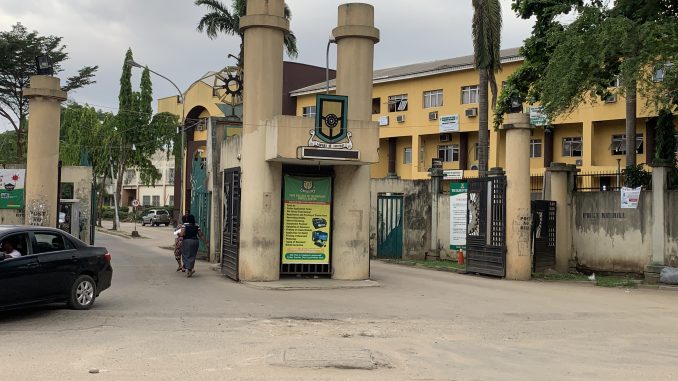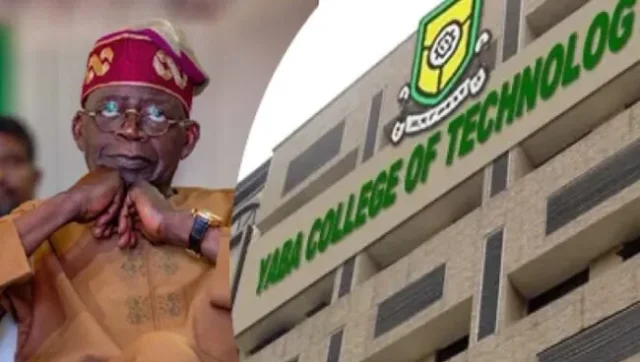The Federal Government is carefully weighing a report aimed at transforming Yaba College of Technology (YABATECH) into a full-fledged technical university. Education stakeholders across Nigeria have been abuzz since the announcement, as this change could redefine vocational and technical education in the country.
At the heart of the proposal is the establishment of what would be known as the Yaba Federal University of Technology and Vocational Studies. This plan, once approved, would not just rebrand YABATECH — it would reposition it to champion Technical and Vocational Education and Training (TVET) at the highest academic level.

Table of Contents
Political Backing and Legislative Momentum
The drive to upgrade YABATECH has significant political traction. President Bola Tinubu has reportedly given his approval, according to Education Minister Dr Tunji Alausa, who revealed during a visit to the institution that the president “did not hesitate” to endorse the change.
This move is not merely symbolic. Senators have thrown their weight behind a bill to formalise the transition. The Senate has already passed its second reading for the bill titled Yaba Federal University of Technology and Vocational Studies (Establishment). According to the bill’s sponsor, the new university would inherit YABATECH’s existing assets, staff, and identity — but with a renewed focus on research-driven, technical excellence. Crucially, legislators maintain that the transformation should not demand extra funding, as the current infrastructure and systems can support the new status.
Reactions Within the Education Community
The proposed reclassification has sparked mixed reactions, especially from student groups and vocational education advocates.
On one side, the National Association of Polytechnic Students (NAPS) has voiced strong support. While initially wary of becoming “just another university,” their leadership has clarified that the intention is for YABATECH to evolve into a specialised technical and vocational university. During a fact-finding meeting at YABATECH’s Council Chamber, NAPS leaders expressed confidence that this is a long-term strategy to elevate TVET, not erase its core practical mission. Rector Dr Ibraheem Abdul echoed this, remarking that the move has been under discussion since as far back as 2000.
On the other hand, some NAPS voices have pushed back. According to a statement from their Kaduna office, the proposed conversion threatens the very essence of polytechnic education — emphasising theory over hands-on, industrially relevant training. Their argument: preserving a strong, well-funded, and practical-focused polytechnic system is more sustainable than simply transforming these institutions into conventional degree-granting universities.

Vision, Opportunity, and National Development
The transformation of YABATECH is not being framed as a purely academic upgrade — it’s being pitched as a strategic move for national technological development. Minister Alausa has repeatedly emphasised Nigeria’s need to move away from an overreliance on white-collar degrees and instead invest in skills that fuel manufacturing, innovation, and entrepreneurship.
He has pointed to global models — particularly in Europe — where technical education underpins strong economies. Alausa also highlighted future-forward disciplines such as artificial intelligence, robotics, and coding. According to him, equipping Nigeria’s youth with these skills can empower them to work remotely, contribute to foreign exchange earnings, and drive home-grown innovation.
Rector Abdul has added his own vision: YABATECH should not merely become a university in name but maintain its technical and vocational DNA. “We are not being turned into a theoretical university,” he said, “This is a long-standing plan to champion TVET at the university level, something Nigeria urgently needs.”
Meanwhile, student bodies are not just observers. NAPS has called on the government to think more broadly — urging greater support for the Full implementation of the HND-to-B.Tech transition and proposing the National Board for Technical Education (NBTE) be upgraded to a full-fledged commission.
What’s Next: Key Hurdles & Prospects
As things stand, the plan is still under careful consideration. For YABATECH to officially become a technical university, several steps must happen:
- Final approval from the Executive: The memo and formal protocols from the Presidency and Ministry of Education are still being awaited, as acknowledged by Minister Alausa.
- Legislation: The bill must complete its journey through the National Assembly and be signed into law. The Senate has made progress, but crucial details still need negotiation and consensus.
- Stakeholder buy-in: Beyond NAPS and student leaders, alumni, industry partners, and faculty will play a crucial role in shaping and supporting the university’s mandate.
- Structural transformation: YABATECH must not only retain its technical edge but scale its capacity — possibly admitting more students and expanding its research and vocational training frameworks.
Despite these challenges, the momentum is real, and the implications are significant. If successful, the transition could:
- Elevate Nigeria’s technical and vocational education, offering a model that balances theoretical knowledge with industrial application.
- Provide more students with access to high-quality, skill-based education, addressing youth unemployment creatively.
- Position YABATECH as a centre of innovation that can contribute directly to national development, technology adoption, and economic diversification.

In Summary
Nigeria stands at a potential inflexion point: transforming YABATECH into a technical university could reshape not just one institution, but the future of technical education in the country. With political backing, legislative progress, and substantial support from student bodies, the plan is gaining real traction — even as debates continue on how best to preserve the practical, hands-on nature of polytechnic training. How this unfolds will be watched closely by educators, students, and policymakers alike.
Join Our Social Media Channels:
WhatsApp: NaijaEyes
Facebook: NaijaEyes
Twitter: NaijaEyes
Instagram: NaijaEyes
TikTok: NaijaEyes
READ THE LATEST EDUCATION NEWS





